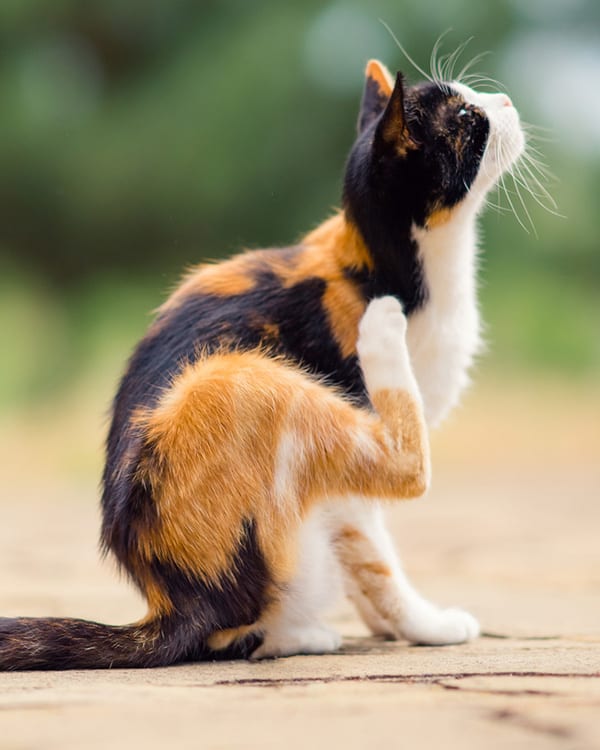Why We Recommend Heartworm Prevention for Cats in Canton, GA
Dogs aren’t the only pets at risk for heartworm disease. Cats, whether they spend most of their time indoors or outdoors, are also at risk. Here in Canton, GA, the climate is often mild, making it a hospitable place for mosquitoes and other pests to thrive. Mosquitoes are the vector for heartworm disease, passing heartworm larvae to one host and taking in larvae when they feed on an infected host. Because there is no existing heartworm treatment for felines, our veterinarians strongly recommend keeping your cat on year-round preventatives for heartworms and other parasites.
How Heartworm Affects Cats
What’s interesting about cats is that they are not typical hosts for heartworms. In fact, according to the American Heartworm Society, most heartworms in cats do not survive to maturity. This means that any cats infected with heartworm disease may not have more than 1-3 adult worms at any given time. The ultimate destination for immature and adult heartworms is the blood vessels of the heart and lungs, which can become obstructed over time and cause serious health issues for your pet.
What is HARD?
Heartworm associated respiratory disease (HARD) is a disease of the lungs that mainly affects cats. Adult heartworms, if they are present, make their way into the lung’s blood vessels. Immature worms can also prompt a significant inflammatory response in some of the smaller blood vessels in the lungs. This can result in the following symptoms:
- Difficulty breathing
- Coughing
- Loss of appetite
- Lethargy
- An unusually rapid heart rate
- Vomiting
- Diarrhea
- Weight loss
- Collapse
- Convulsions
In a worst-case scenario, HARD can be fatal. What’s more, the clinical symptoms of this disease can cause it to be confused for something else, such as bronchitis or asthma.

Can Heartworm be Treated in Cats?
There are no options currently available for treating heartworm disease in cats. Any treatments that can be attempted must be directed at the symptoms, rather than the underlying cause. In truth, the only guaranteed way to “treat” heartworms in cats is to prevent infection altogether.

How to Prevent Feline Heartworm Disease
At Riverstone Animal Hospital, we offer Revolution Plus 6-in-1 as the best parasite preventative for cats. It covers all the major parasites that can threaten your cat’s health, including:
- Heartworms
- Fleas
- Ticks
- Ear mites
- Roundworms
- Hookworms
One dose per month throughout the year is the safest, most cost-effective option for protecting your cat and keeping your home pest-free, too. We also highly recommend bringing your pet in at least once a year for their physical exam and blood and fecal testing, which can help us detect potential problems.
Call (770) 479-7141 to speak with our team or request a checkup for your pet!
